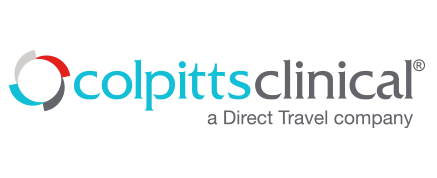The impact of using travel and expense providers on patient retention and recruitment
The impact of using travel and expense providers on patient retention and recruitment in clinical trials is an emerging area of interest
There are some key studies and reports on this topic.
Deloitte’s 2021 Global Life Sciences Outlook highlights how financial and logistical assistance can significantly enhance patient recruitment in clinical trials, especially by attracting a more diverse patient demographic.
According to the report, providing such assistance—like covering travel expenses and offering logistical support—addresses several key barriers for potential participants, particularly those from underserved or economically disadvantaged populations.
The Deloitte report emphasizes that offering travel assistance and financial support is one of the keyways to improve recruitment by ensuring that a wider, more diverse patient population can participate, leading to more inclusive and representative clinical trial outcomes.
“The impact of patient reimbursement on recruitment and retention in clinical trials” (2015) A study published in Clinical Trials journal that looks into how reimbursement for travel, lodging, and meals can affect patient recruitment and retention. The authors found that when trial sponsors provide financial support for such expenses, there is a noticeable improvement in both recruitment rates and retention, particularly for patients from lower-income backgrounds or those living far from trial sites.
“Assessing the role of transportation in clinical trial recruitment and retention: A qualitative study” (2020) This study, published in Contemporary Clinical Trials, specifically examined the role of transportation costs and how reimbursement or support programs influence patient decisions to enroll and stay in clinical trials. The researchers concluded that logistical support, such as covering transportation and related expenses, significantly boosts retention rates, particularly for patients in rural or underserved areas.
“Effect of patient support services on retention and recruitment in clinical trials” (2021) Published in Clinical Researcher, this study reviews various support services, including travel, that can improve recruitment and retention. It found that when travel expenses are covered, patients are more likely to attend scheduled visits, leading to higher retention rates and better adherence to trial protocols.
Reports from organizations like Clinical Trials Transformation Initiative (CTTI) CTTI has conducted studies around improving patient access and retention in clinical trials. Some of their initiatives include addressing financial and logistical barriers to participation, including travel support, which has been shown to positively affect recruitment and retention.
While the FDA does not provide explicit guidance on reimbursing travel and other expenses for clinical trial patients, it supports reducing barriers to participation and recruitment, including logistical and financial ones. Sponsors are encouraged to consider patient convenience and support to improve recruitment and retention, including through practices like reimbursing travel costs.
These studies and others suggest that covering travel and related expenses helps mitigate one of the key barriers to clinical trial participation, leading to better patient recruitment and retention.
The U.S. Food and Drug Administration (FDA) doesn’t have specific regulations solely dedicated to the reimbursement of travel and expenses for patients in clinical trials. However, the FDA recognizes the importance of reducing barriers to participation and supporting recruitment and retention in clinical trials, particularly for underserved populations. This includes addressing logistical and financial barriers like travel costs.
Here are a few key points the FDA and related guidance touch on:
FDA Guidance on Patient Recruitment and Retention
The FDA encourages sponsors to take steps that improve recruitment and retention in clinical trials, acknowledging that patient participation is crucial for the success of clinical research. The FDA’s “Guidance for Industry: E6(R2) Good Clinical Practice: Integrated Addendum to ICH E6(R1)” includes general recommendations on patient welfare, such as minimizing risks associated with participation, which can include logistical barriers like travel.
It does emphasize that trial designs should consider participant convenience, minimize inconvenience, and provide appropriate support to patients.
Travel and Financial Support in Clinical Trials
The FDA does not provide specific rules on reimbursing travel expenses, but financial incentives and reimbursement for out-of-pocket costs, such as travel, are commonly used in clinical trials. The FDA’s “Financial Disclosure by Clinical Investigators” regulation (21 CFR Part 54) mandates transparency around financial conflicts of interest but does not prohibit reimbursing travel or other associated expenses. In fact, providing reimbursements is seen as an effective way to improve retention, though it must not create undue coercion.
Ethical Considerations and Access
The FDA acknowledges that providing compensation and covering expenses may be necessary to enhance access to clinical trials, especially for participants who face barriers like transportation. In the “FDA Patient-Focused Drug Development” initiative, the FDA encourages clinical trial sponsors to consider diverse patient populations and to implement strategies, including financial and logistical support, to ensure broad access.
Patient-Centered Initiatives and New Regulations
The FDA is also part of broader initiatives aimed at making clinical trials more patient-centric. This includes efforts to use more flexible trial designs and to consider how logistical factors, including travel, can impact patient participation. For example, the FDA’s Real-World Evidence (RWE) Initiative encourages the use of real-world data to complement clinical trials, which may help reduce the need for patients to travel long distances to trial sites.
For specific, actionable guidance, sponsors may look to other agencies, like the National Institutes of Health (NIH) or clinical research organizations (CROs), which often incorporate these practices into trial protocols.



